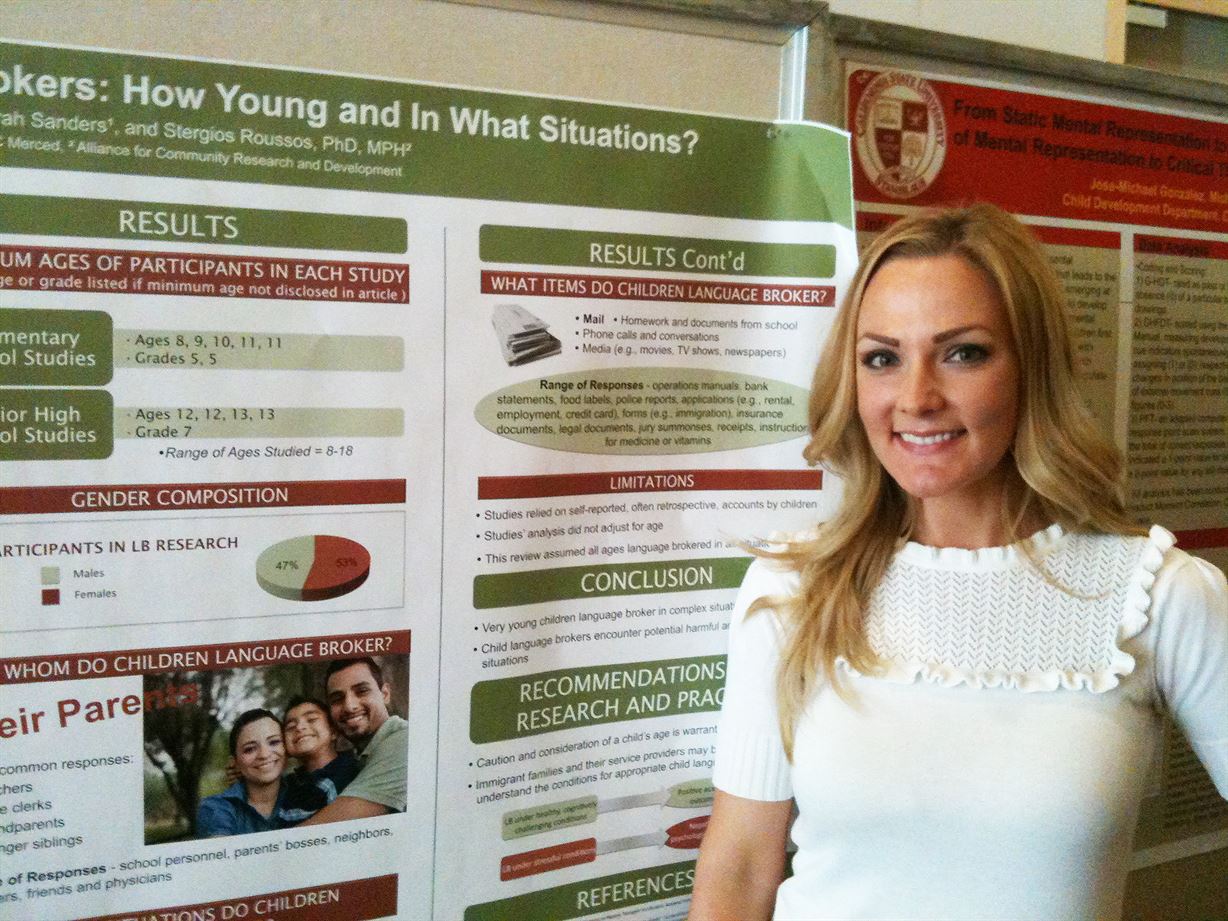
 As a child, Sarah Sanders was fascinated by how some of her bilingual classmates needed to translate conversations for their parents. Called language brokering, the practice often resulted in her classmates being pulled into an adult world at an early age.
As a child, Sarah Sanders was fascinated by how some of her bilingual classmates needed to translate conversations for their parents. Called language brokering, the practice often resulted in her classmates being pulled into an adult world at an early age.
After enrolling at UC Merced and being accepted into the McNair Scholars Program, Sanders made understanding the implications of this practice her research focus. Specifically, she’s curious about how language brokering is different in rural settings.
“If not harmful, language brokering can definitely change a family dynamic,” she explained.
Sanders, who’s from Merced, was one of more than 30 undergraduate students who presented at the fifth annual Undergraduate Summer Research Symposium in August. This year’s event featured students with four organizations:
- the McNair Scholars Program;
- the Center of Excellence on Health Disparities’ Undergraduate Research Training Program;
- the University of California Alliance for Graduate Education and the Professoriate; and
- the University of California Leadership Excellence Through Advanced Degrees research and graduate preparation programs.
The students presented on topics ranging from stem cells to student success in science and engineering majors in front of an audience of professors, peers and community members.
“Students participating in the symposium have been working on their chosen research topic all summer, which means they have had only six to eight weeks to sink their teeth into an entirely new research question and lab culture,” said Trevor Hirst, who helped organize the event and serves as the program associate for the Center of Excellence. “It's amazing how, in such a short space of time, undergraduate student researchers can give such a detailed presentations before a large audience. It really is a testament to their hard work.”
After graduating from UC Merced with a degree in psychology, Sanders said she plans on applying to UCLA for graduate school. She said conducting research as an undergraduate at UC Merced has made her ready for the challenges ahead.
“This research project was very independent,” she said. “That’s what grad school is — one big independent project. I’ve shown I can be successful. This will just be in a larger capacity.”
Bouapanh Lor with the Center of Excellence worked alongside Stergios Roussos, with the Alliance for Community Research and Development, to determine the Hmong cultural practices that are used to prevent diseases and maintain overall good health.
There is a distrust of Western medicine within much of the Hmong community, Lor explained during her presentation, so understanding the practices could help bridge the divide.
Their study suggests that there is a need for cultural liaisons that are trusted and educated about vaccines and drugs.
Those people would be able to reach out the Hmong population to talk about their health issues. Lor will continue researching this topic throughout the year and will report more findings at the year-end symposium.
Lor, who went to high school in Merced, is a biology major with an emphasis in human biology. After graduating, she plans work toward becoming a physician’s assistant.






